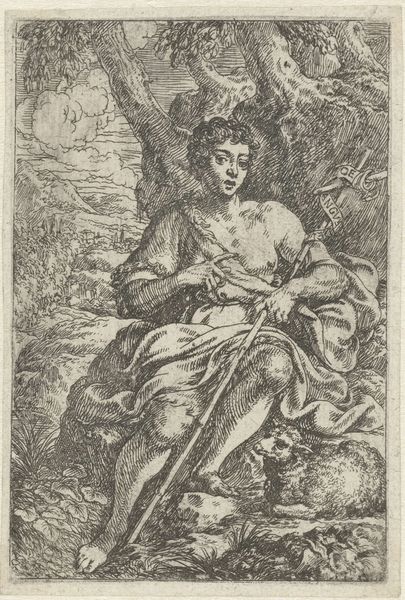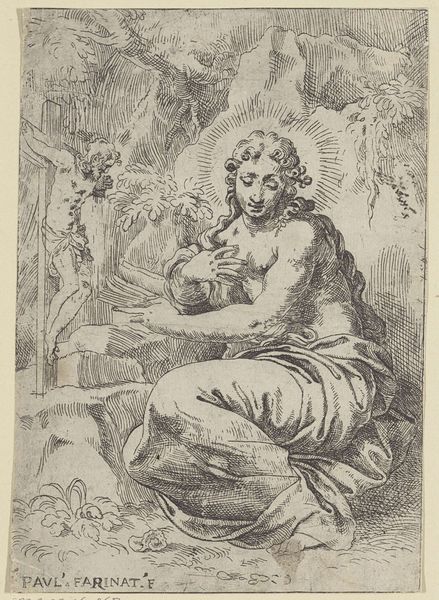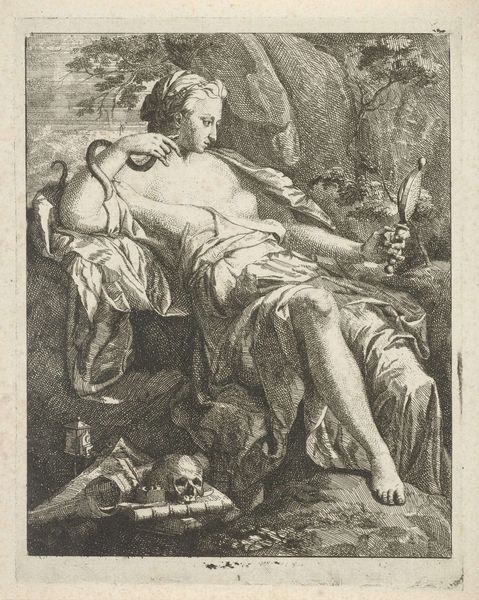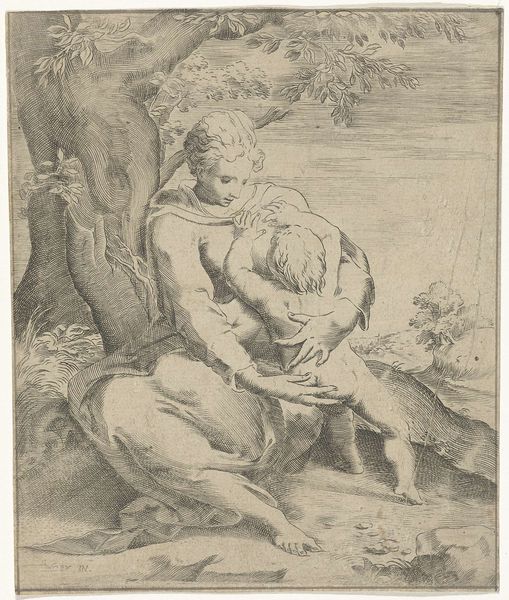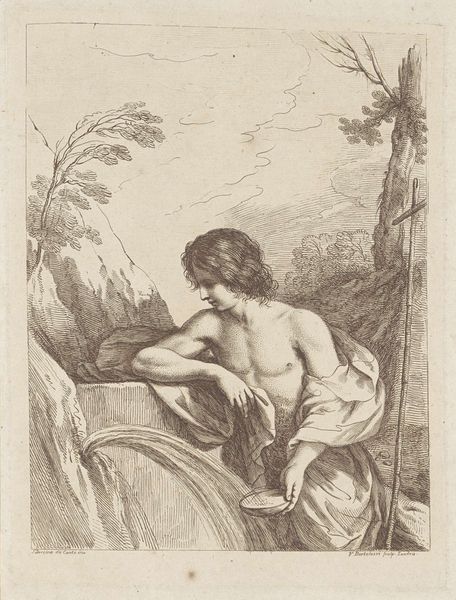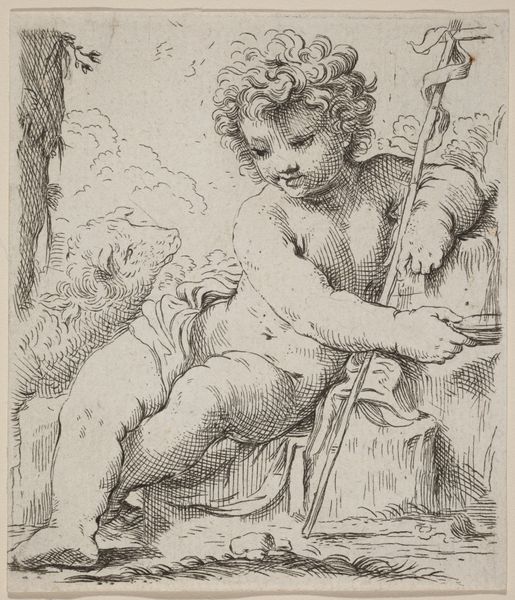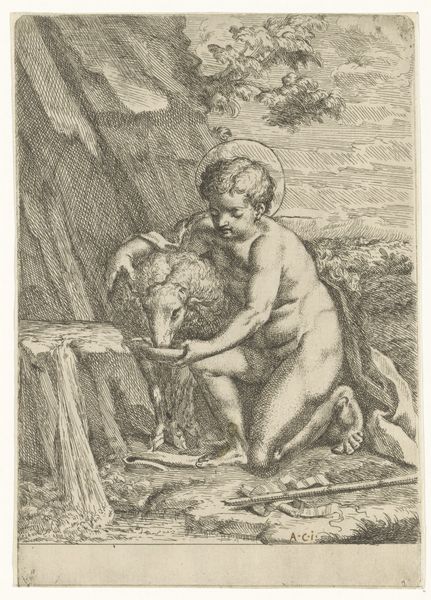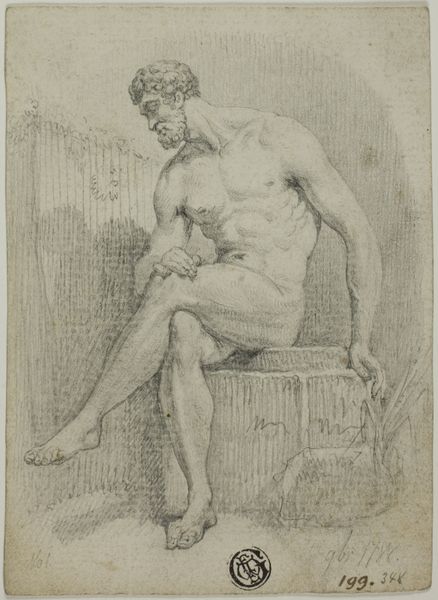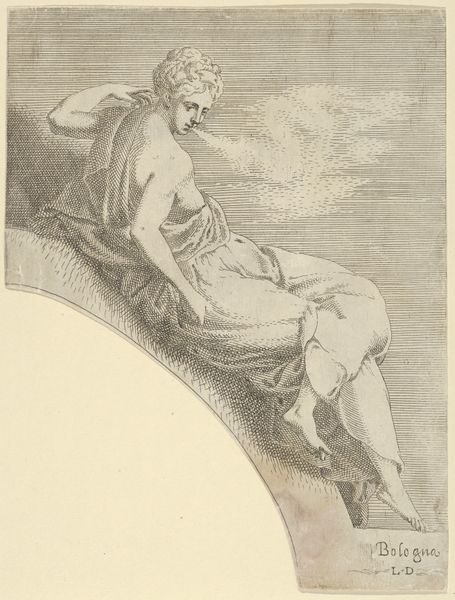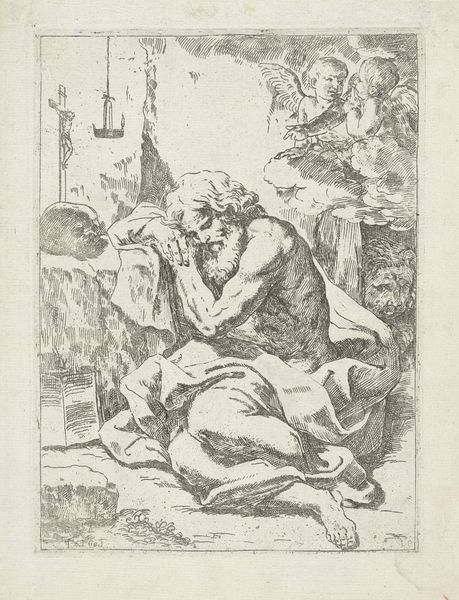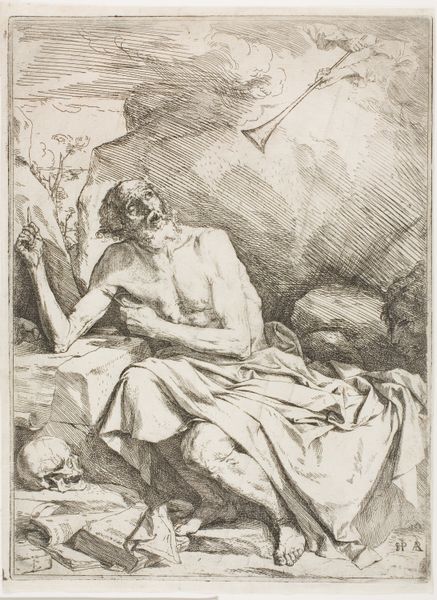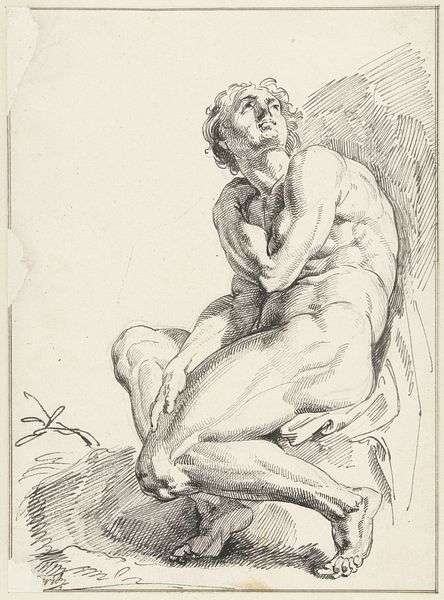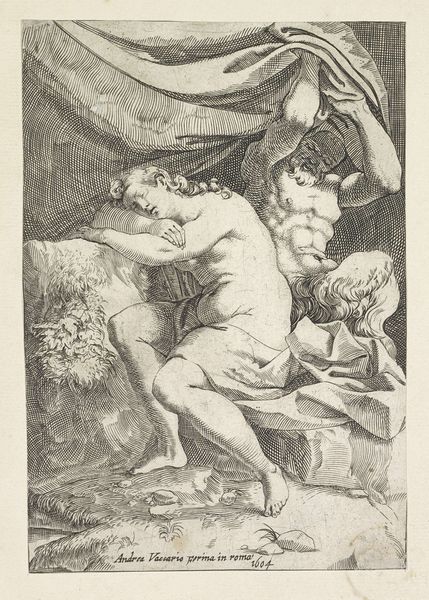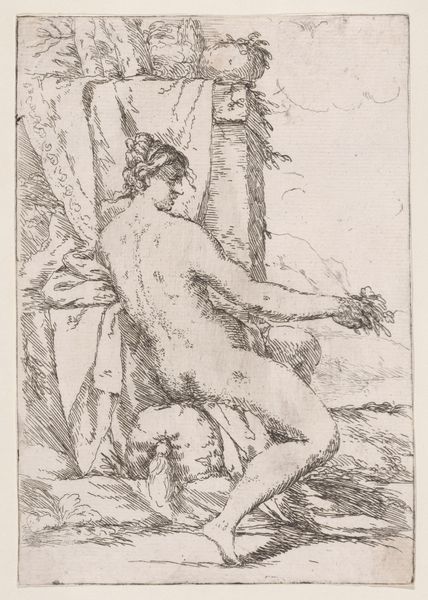
etching
#
baroque
#
etching
#
old engraving style
#
landscape
#
figuration
#
genre-painting
#
nude
Dimensions: height 95 mm, width 70 mm
Copyright: Rijks Museum: Open Domain
Jacopo Amigoni’s “Narcissus” presents a study in lines and form, etched with ink on paper during the 18th century, and now held at the Rijksmuseum. The monochrome work captures the tragic figure of Narcissus, not through grand gesture, but in a moment of quiet, deadly self-absorption. The composition is structured around dense, directional hatching that models the figure and landscape. Amigoni uses line to define the contours of Narcissus’s body, creating a sense of depth and texture. The repetitive lines, building up shadow and mass, invite us to consider how the very act of representation—of fixing an image—can become a form of entrapment, mirroring Narcissus's own fixation. The graphic nature of the etching medium lends itself to exploring themes of surface and reflection. Amigoni destabilizes the traditional reading of the Narcissus myth by drawing attention to the process of image-making itself. In doing so, it challenges the viewer to question the nature of beauty, representation, and the pitfalls of self-obsession, reminding us that art's meaning is ever open to interpretation.
Comments
No comments
Be the first to comment and join the conversation on the ultimate creative platform.
